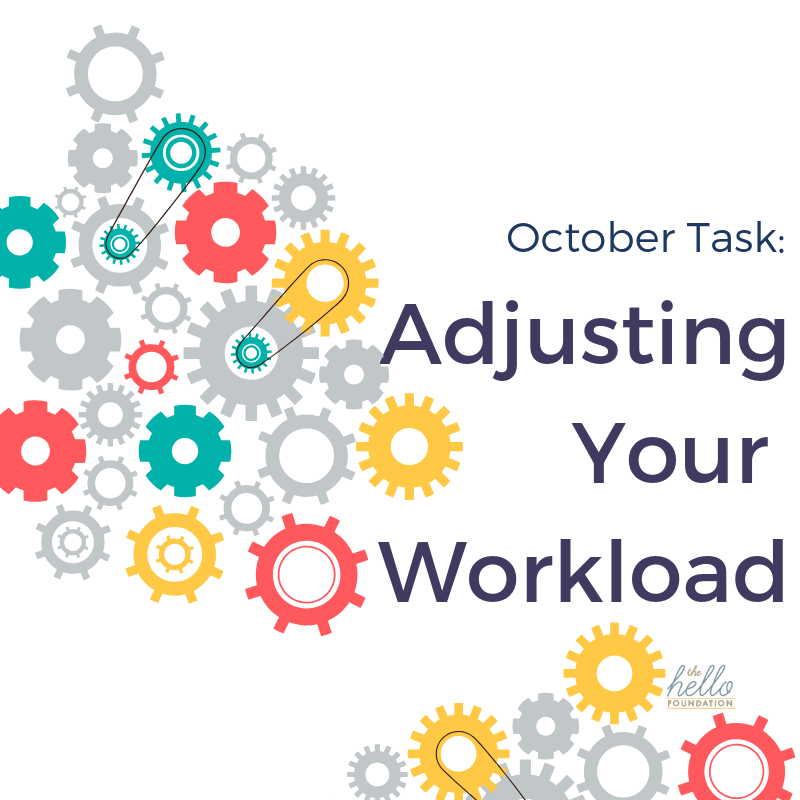It’s October. At most school-based sites, the gears are in motion by now. Though we may never feel really settled, most of our back-to-school activities are filed away for next year. Fall screenings are complete, parents’ nights and introductions have been done, our schedules have been tested and tweaked, and we may (especially if we are a returning staff member) even feel like there is a comfortable routine that we have found. This makes it a great time of year for workload adjustments. If you are working with an SLPA or other paraprofessional, this kind of deeper review is especially important, but even if you’re not, taking an October look at what’s working and what’s not will help the rest of your year go more smoothly.
There are several ways you can explore your workload in the fall, but one of my favorite ways is as an “audit” for every student. Whether you do it by hand or in a spreadsheet, look at each student you serve and ask the following questions, and assess whether things are working ✅ or need adjustment ❌ in these three areas:
Course of therapy
Are all of the intended goals being addressed in therapy? Do you have an evidence-based plan for what comes next? If there is an SLPA or paraprofessional who also works with the student, are they clear about the therapy plan? Knowing where each student is, what you’re working on, and what the next steps are will simplify and de-stress your day-to-day tremendously.
Interaction between therapy and classroom
Do other people in the school understand what the student’s speech/language goals are? If the goals are supporting student success across the school environment, chances are that those goals are important to other people, too. Talk to people about what you’re working on. You’ll be rewarded with buy-in and support!
Outside the therapy space
What else is going on for this student? Have the needs or context changed? Sometimes, talking to teachers, parents, and other support staff reminds us that the skills we are currently focused on are but a tiny piece of the student’s existence.
This kind of audit on some students might be quick and fairly easy. For others, this might be the start of a process that occurs over the coming months. Pace yourself, and know that that’s what this time of year is for! There is plenty of time to make and see changes this year. The gears are in motion!






